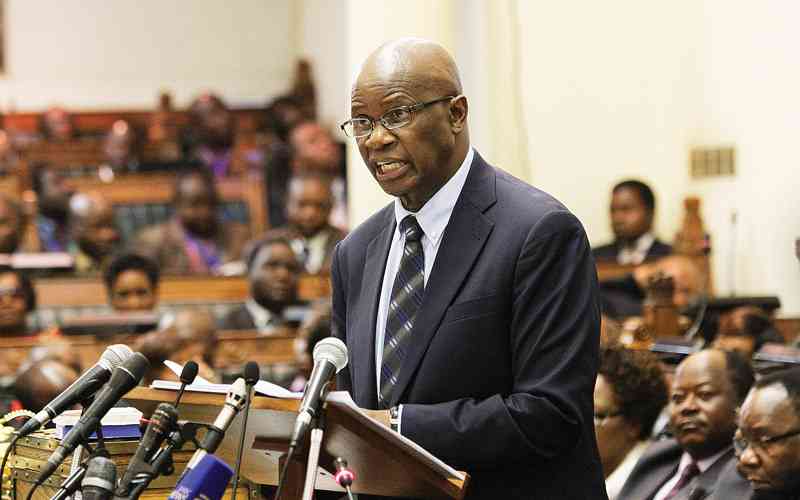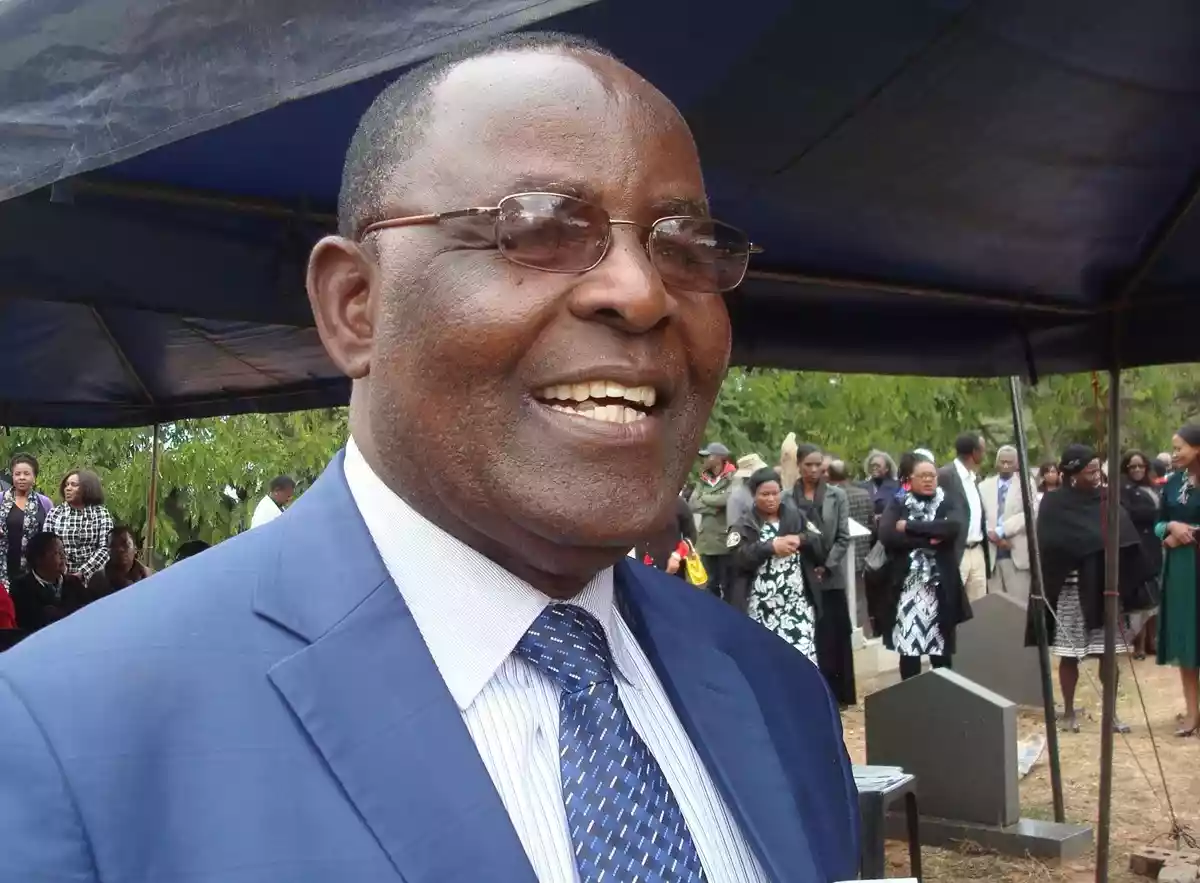
Land developer George Katsimberis lawyer says transcripts of the businessman’s fraud trial was deliberately doctored to aid the complainant, Ken Sharpe’s Pokugara Properties’ case.
Kastimberis wants his case where he is accused of fraudulently obtaining approval of a plan from the Harare City Council for a house he built on behalf of Pokugara in Harare’s Borrowdale area referred to the Constitutional Court (ConCourt) because he believes that his rights are being violated in the magistrates’ court.
The alleged doctoring of the transcripts of court proceedings to remove details that might aid the land developer’s case has taken centre stage in the application for the ConCourt referral.
Chinyoka told magistrate Vongai Guriro last Wednesday that the transcripts were altered in a “very deliberate and criminal” manner to benefit Sharpe’s company. Before the ConCourt application, Katsimberis made several attempts to have Guriro and prosecutor Michael Reza recusing themselves from the case because of their alleged bias.
During Katsimberis’ cross examination, Chinyoka said they wanted to demonstrate that parts of the transcripts that had been doctored were those that were favourable to his client’s case and unfavourable to Pokugara.
“Most of the parts mostly favourable to Katsimberis’ case were omitted,” Chinyoka said.
“Also, those parts where the complainant’s case will be at its weakest were either omitted or edited.”
- Push to have top prosecutor in dock
- Bid to take prosecutor Reza to witness stand hits snag
- Court rules in favour of State prosecutor Reza
- Lawyer reprimanded for lying in court
Keep Reading
Chinyoka said the cross examination will show that the parts that were omitted formed the essential elements of his application, which would be difficult to prove using the altered court record. “We are also trying to prove that the omissions are not a question of the transcriber being lazy, this was very deliberate and calculated,” he argued. “This is someone sitting on the transcript and deciding that ‘this does not assist us, this does not show us in a good light, let us remove it’. “This will come out in the testimony.
“Had whoever worked on this thing (transcript) approached it with laziness, the omissions would have been random, and in this case, it has been deliberate and incisive. What we are trying to demonstrate is that the part where the transcript has been doctored, are parts that are especially favourable to Mr Katsimberis’s case and also parts where the complainant (Ken Sharpe’s Pokugara Properties)’s case is at its weakest.
Chinyoka said most of the essential elements of the case were omitted to make Katsimberis’ application meaningless.
He said these included areas where Sharpe’s business associate Tatiana Aleshina’s name was mentioned and where Reza spoke. “Your worship, you have been sitting in this matter, and you know that the joint venture agreement, deed of settlement and house plan are the most important aspects of this case, all those are missing,” Chinyoka said.
“Tatiana is mentioned several times during the proceedings but in the transcript, she is mentioned only twice.”
Katsimberis said it was an understatement to say that the transcript was doctored, but it “realistically, underwent surgery” by altering his responses and questions from his lawyer, apart from omitting some sections and substituting exhibits.
He said it was illogical for him to be quoted saying Pokugara reported him to the police first, contradicting his report to the police that Pokugara reported last. Katsimberis was in court before High Court Justice Siyabona Musithu claiming that he reported his matter first. Before Justice Musithu, Katsimberis argued that Reza and other prosecutors perjured themselves by claiming that he reported Pokugara to the police two months after the company reported him.
Katsimberis’ position was confirmed by a letter of complaint to the prosecutor general by the Special Anti-Corruption Commission (Sacu) in March 2021 on how criminal cases are conducted. Sacu indicated that Katsimberis reported the matter first and this raised concern on the way the National Prosecuting Authority was treating criminal cases. He said another falsehood in the transcript was that he said Pokugara “was his partner” when he entered into a joint venture agreement with Sharpe, not Pokugara.
In the transcript, asked who Pokugara is, Katsimberis is quoted saying: “He is my partner.”
But during cross examination, he vehemently denied ever making such a claim:
“I never said that, and I couldn’t have said that,” he said, adding that it was on record that he entered a joint venture deal with Sharpe, not Pokugara. Katsimberis said the reason he sought a referral to the ConCourt was because his application for further particulars in the case was dismissed, but that was omitted from the transcript.
“My request for the particulars is not there. It is not an error, it is deliberate,” he said. “The missing parts are all to do with what Reza said, Tatiana, Pokugara, the deed of settlements and the housing plan, which form the basis of my case.” The deed of settlement, which is being challenged in court gives Sharpe unfettered rights to large tracts of land and criminal immunity on all issues relating to land he got from Harare City Council.
Also absent from the transcript is Katsimberis’ application for Reza’s recusal.
“This transcript is a complete disaster,” Katsimberis said. He said he had noted that he usually gets a transcript that reflects what had transpired each time he requests a record of recent proceedings and proposed that he gets transcripts soon after each seating.
Guriro admitted that it was Katsimberis’ constitutional right to get the transcript, but could not commit herself to granting such an order. Last month, Chinyoka said the court record was criminally tampered with such that some pages from the document were typed in huge fonts and double spacing, resulting in 57 pages being reduced to only two.
The font size and spacing were different on some pages and the arguments made in court were not flowing, he said. Exhibits had been replaced, the duties of the defence counsel and prosecution interchanged and questions and answers either omitted or doctored. Some proceedings lasting three hours were reduced to one-and-a-half pages, to mention just a few of the anomalies.
Katsimberis will be back in court January on 17 and 19 with Guriro proposing seating on Saturdays to fast-track the case.










